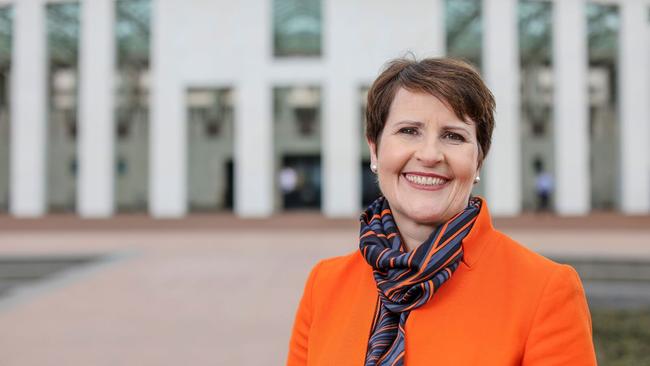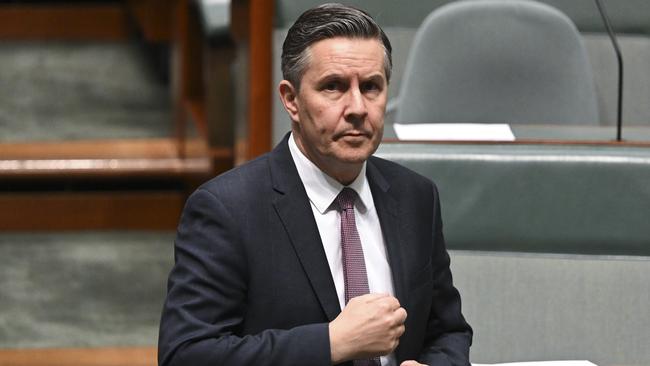Pharmas allege government communication breakdown in medicine deferral crisis
Labor has failed to plan for the consequences of delaying drug subsidies and left hundreds of patients waiting on treatments, the pharmacutical industry’s top body warns.

Labor has failed to plan for the consequences of delaying drug subsidies and left hundreds of patients waiting on treatments, the pharmacutical industry’s top body warns.
Medicines Australia, which negotiates on behalf of drug companies, had a key role negotiating with the government’s independent drug subsidy assessor after an unprecedented announcement it would limit and defer submissions.
Announced in late October, the delays threatened to keep up to 45 new drugs inaccessible to all but a small portion of patients.
Advocate groups claim the drug delays, actioned by the Pharmaceutical Benefits Advisory Committee, have left cancer treatments and chronic-disease medication in funding limbo.
In a timeline of the departmental response to the PBAC capacity crisis released on Thursday, Health Minister Mark Butler was said to have requested his department “advise Medicines Australia about the evaluation capacity shortfall” on October 9, the same date he was officially informed of the excess in submissions that left PBAC seeking to offset its workload.
Two days later the Health Department reports it contacted its independent evaluators to determine how many submissions they could take on.

Despite the October 9 mandate, MA is resolute it was not engaged by the Health Department until weeks later.
Chief executive Liz de Somer said MA was not made aware until October 22, when drug subsidy sponsors were also alerted their submissions faced an indefinite stall.
“It became evident in Estimates … that the Ministers’ Office first asked the Department to consult with Medicines Australia on this issue on 9 October. It’s very disappointing this didn’t happen,” Ms de Somer said.
“Had we been properly consulted at this time, our recommendation to hold an additional PBAC meeting could have been in place as an acceptable interim solution and mitigated the grief that has followed for patients and sponsors. Instead, the Minister has had to step in.”
“This situation is a failure in contingency planning. Sponsors pay significant cost recovery fees for submissions to be considered. If there are more submissions than one meeting can handle, additional days should be added to existing meetings. Additional meetings should be a secondary contingency.”
A Health Department spokesperson said MA was not immediately contacted so that it could “be as well informed as possible” before informing drug sponsors of the delay.
“The PBAC met to consider the submissions and selected submissions for the March 2025 agenda using a patient-centred approach driven by clinical need,” the spokesperson said.
“This meant that when the Department communicated with Medicines Australia on 22 October 2024, more clarity could be provided about the situation.
“The communications with Medicines Australia and sponsors ahead of invoicing and the submission due date provided an opportunity for applicants to withdraw their submission without the financial obligation of the full submission fee.
“The department considered all options to address the shortfall, including those that have been put forward by Medicines Australia.”
The PBAC meets three times a year in March, July and November, with Finance Minister Katy Gallagher saying on Thursday the PBAC would continue to grapple with “finite resources and time” despite recent intervention.
“I think you also need to accept the reality of the fact that there is only so much that one PBAC meeting can do,” Senator Gallagher said.
“If you get double the amount of submissions or whatever it is close to that, including complex submissions, there is finite resources and time to deal with that.”
MA has repeatedly argued that, given drug subsidy applicants pay fees that cover the cost of evaluation for each medicine they submit, the current resourcing struggle is a product of failing scalability, rather than funding woes.
“MA has not discussed evaluator funding with the Department, however, the evaluator costs are fully recovered through fees,” Ms de Somer said. “The Department is responsible for managing evaluators, and should have a scalable, sustainable workforce in place.”
“A robust contingency plan would allow for additional days to be added as required without needing the Minister to get involved. The PBAC purpose is to assess submissions to give the Minister advice on providing subsidised access to the latest medicines for Australian patients. Thousands of lives are impacted by decisions made by the PBAC each time it meets – we mustn’t lose sight of this.
“This is fully cost recovered and the services should be able to accommodate surges in demand. Meetings should last as long as necessary to consider that demand.”
Of the 45 submissions delayed, 24 were deemed “major” medicines. Many sponsors have since removed their submissions, reducing the overall workload from 77 drugs to 63 across the March and May meetings.
A March 2024 PBAC meeting had 65 drugs upon its agenda, while a March 2022 meeting considered 69 in a single sitting.
The Albanese government has previously worked to speed up its HTA system, implementing a working group to institute the findings of a review that proposed 50 systematic reforms tipped to reduce wait times by 16 months in the majority of cases.
Health officials have contended there is no intention to defer future submissions, despite introducing a “maximum total number” of drugs considered at each meeting.
“Delays, which may be seen as a convenient way for successive governments to manage or avoid expenditure, are no longer acceptable when the treatments being delayed could save and change lives, grow productivity and contribute to the economy,” Ms de Somer said. “This was not an overnight problem and unfortunately it won’t be fixed overnight.”
“The fact is there are medicines available at subsidised rates in other countries that are having excellent results, but they are not available here because of delays.
“In January 2024, there were 7 cell and gene therapies registered in Australia; 46 were registered in other comparable nations, and 3,951 were in clinical development. We know they are coming, and we know our system already cannot cope with increased volume of PBS submissions or with assessing new types of therapies. We need reform now.”








To join the conversation, please log in. Don't have an account? Register
Join the conversation, you are commenting as Logout